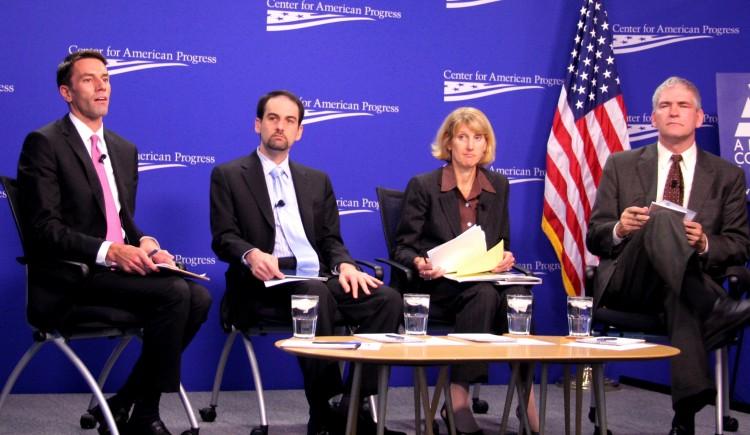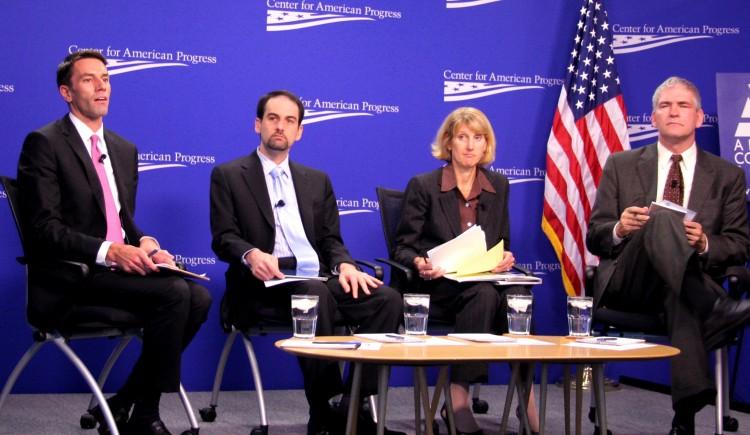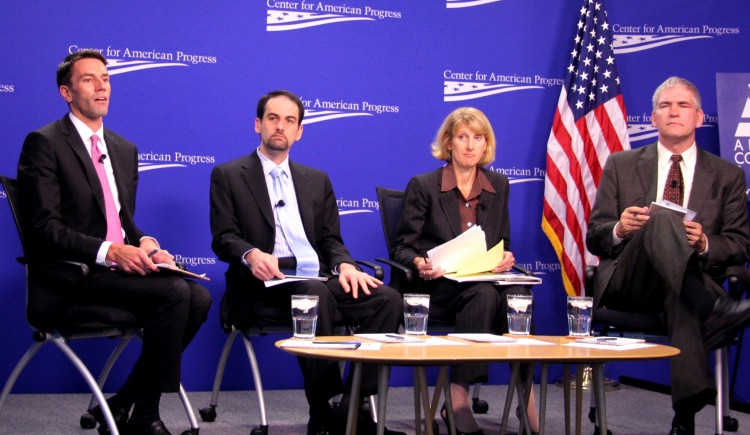WASHINGTON—During the recent congressional and presidential elections, the nation’s district and circuit courts were quietly working to ensure relatively smooth and peaceful elections.
“The courts played a critical role in ensuring that the election disruptions were minimized,” said Carolyn Fredrickson, president, American Constitution Society for Law and Policy, two days after the election. Fredrickson was speaking at the Center for American Progress (CAP) as a panelist on a program titled, Why Courts Matter.
Republican challenges in the courts where the margin of victory was close, such as in Ohio and Florida, would have been futile, because President Barack Obama won eight of the nine so-called swing states. Fredrickson pointed out that the situation could have been contentious had the swing states “tipped a different way,” similar to the 2000 presidential election that was ultimately decided in a 5-4 Supreme Court decision.
Before the election, several states passed laws to restrict voter registration, reduced the availability of early voting, and made stricter voter identification.
Since the beginning of 2011, 19 states have passed laws or saw executive actions that would make it harder for some persons to vote, according to the Brennan Center at the New York School of Law. The Brennan Center warned at the end of August that there was “a significant risk that ballot security operations will result in vote suppression and voter intimidation during the 2012 elections.”
New voter laws were passed by mostly Republican-dominated state legislatures and governors targeting voter fraud. Opponents of the new laws say that whatever the intent, the laws have the effect of discouraging a certain class of voters—the poor, minorities, college students, and the elderly who tend to vote Democratic.
Many blame new restrictions on early voting in the swing state of Florida for long lines, with voters in some areas waiting up to eight hours to vote, the Huffington Post reported. With 29 electoral votes, Florida tied with New York in having the third most electoral votes.
Florida Gov. Rick Scott (R) also issued an executive order that made it harder for those with past criminal convictions to restore their voting rights. Twenty-three percent of African-Americans in Florida are unable to vote due to ex-felon status.






